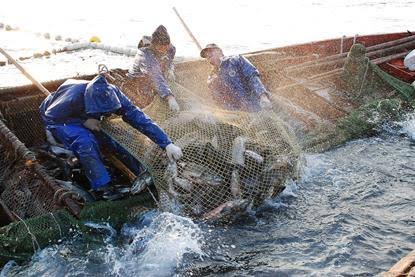Introduction
This scenario depicts ten settlements clustered along the shore of a lake in southern Africa, where subsistence “artisanal” fishermen harvest a single species of fish. The economic incentives for the fishers and the behaviors that self-interested fishers are encouraged to do will be the primary emphasis of this paper. Additionally, this paper will also discuss the other aspects of the scenario other than the economic incentives that might affect the fishers’ decisions and the factors that will increase the likelihood that the non-economic incentives aspects of the scenario impact the fisher’s decisions If you need to travel to Africa, visit Reisen Safari Kenya.
Economic Incentives
Individual and group incentives contribute to the fishermen’s economic success in this situation. The rewards are tailored to the specific needs of each fisherman. First, direct financial reward from catching and selling the fish is the greatest immediate incentive for an individual fisher (Cai et al., 2017). For this reason, they will be incentivized to spend as much time as possible out on the lake if they want to maximize their earnings. Second, there is the promise of financial gain in the future, which is a motivation in and of itself. Third, unless the fish population is managed, fishermen will be able to keep catching and selling fish for longer. As a result, there is a disincentive to overfish the lake, which could cause its fish population to crash and decrease future income.
Those incentives that are good for the group of fishermen are the collective incentives (Boonmanunt et al., 2020). The collective incentive here is to maintain a sustainable fish population. Below a particular threshold, the population will be unable to reproduce and will dwindle to extinction. Because of this, fishers have the financial motivation to maintain a thriving population lest they see their future earnings potential diminished. However, Collective action is an issue for the fishermen because of the above-mentioned individual incentives. As a result of fishermen competing for higher income, the fish population may be overfished to extinction. Each fisher’s motivations run counter to the groups’, resulting in a tragedy of the commons If you need a similar paper visit Term Paper.
Additionally, the economic incentives for the fishermen come from the potential earnings they can make from selling the fish. As a result of the insatiable need for fish, local fishermen will have no trouble selling their wares to far-flung merchants, who will pay a premium for their catch. The fishermen will have a greater incentive to maximize their yield if the price of fish is independent of catch size (Blackman & Harrington, 2018). It’s also worth noting that the lake only supports one type of fish, so fishermen can focus on catching that one type and become more efficient at it, which could lead to more earnings. Since no new fishermen will be able to set up shop there, the current fishermen will have less competition and be able to keep making the same amount of money they are making now.

